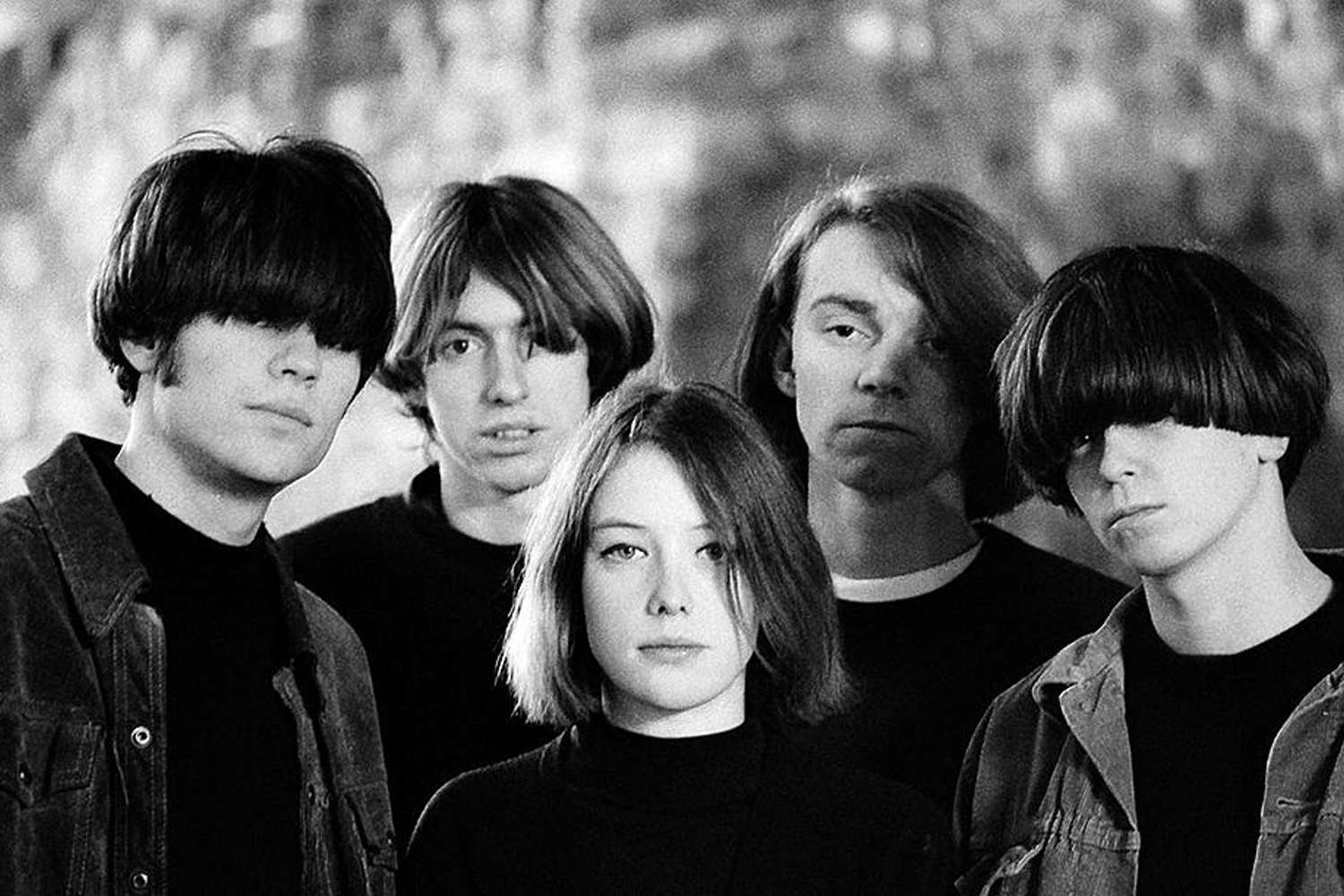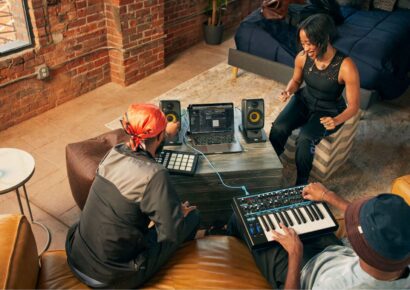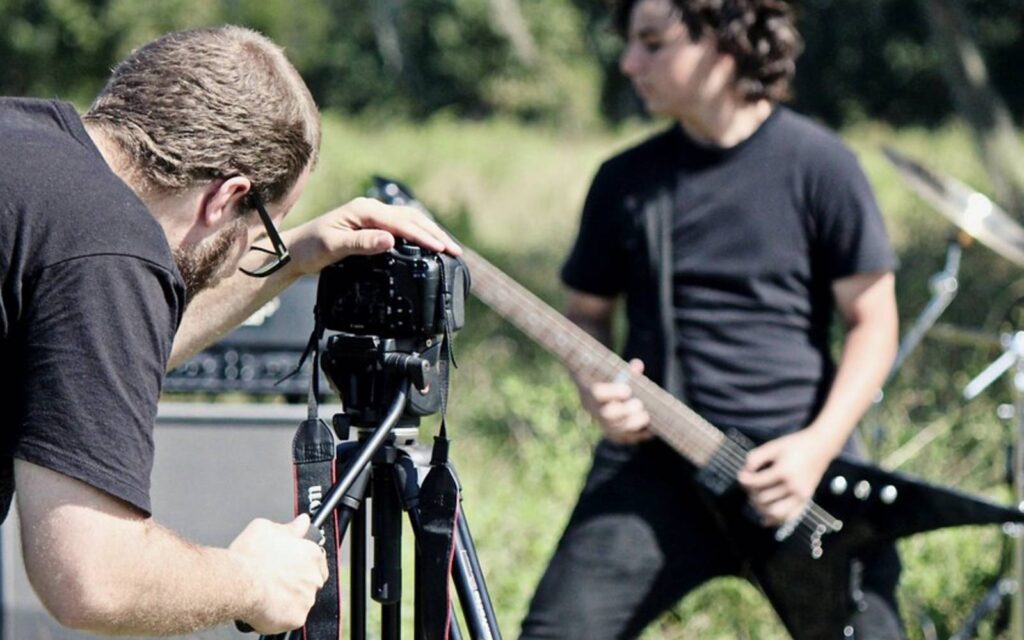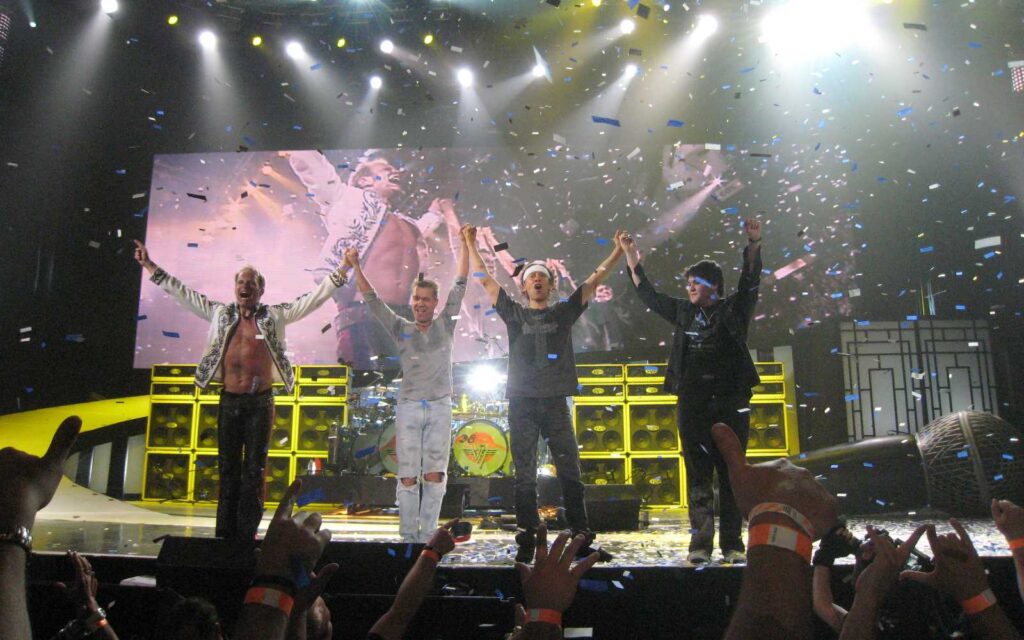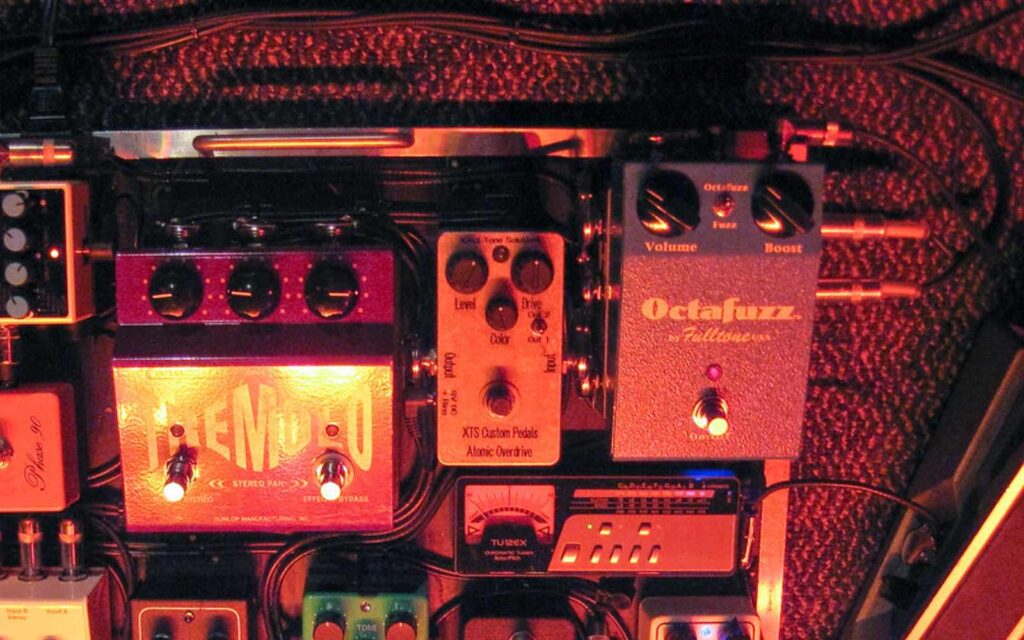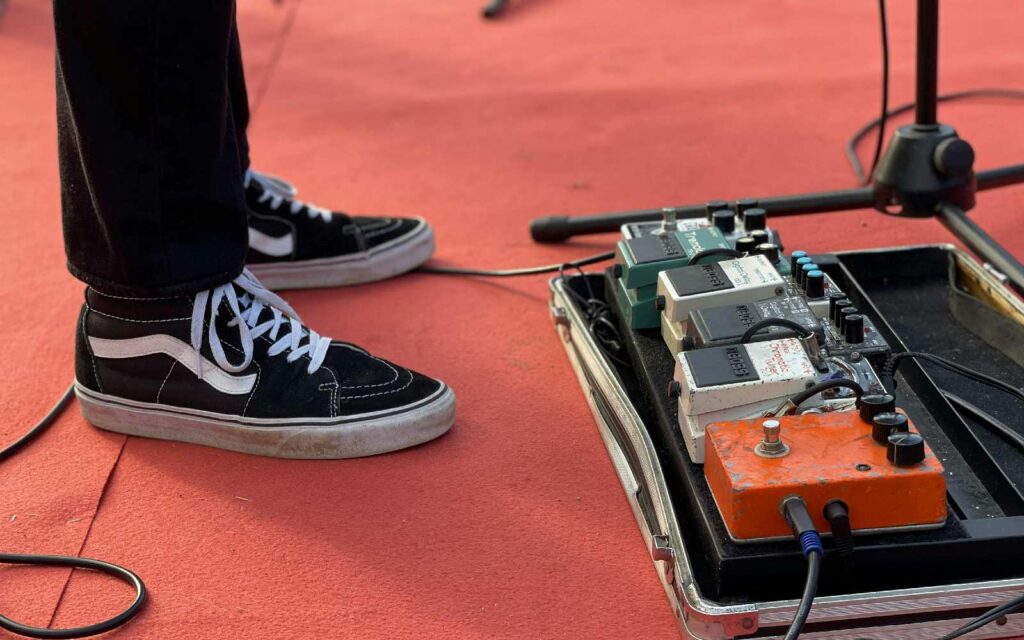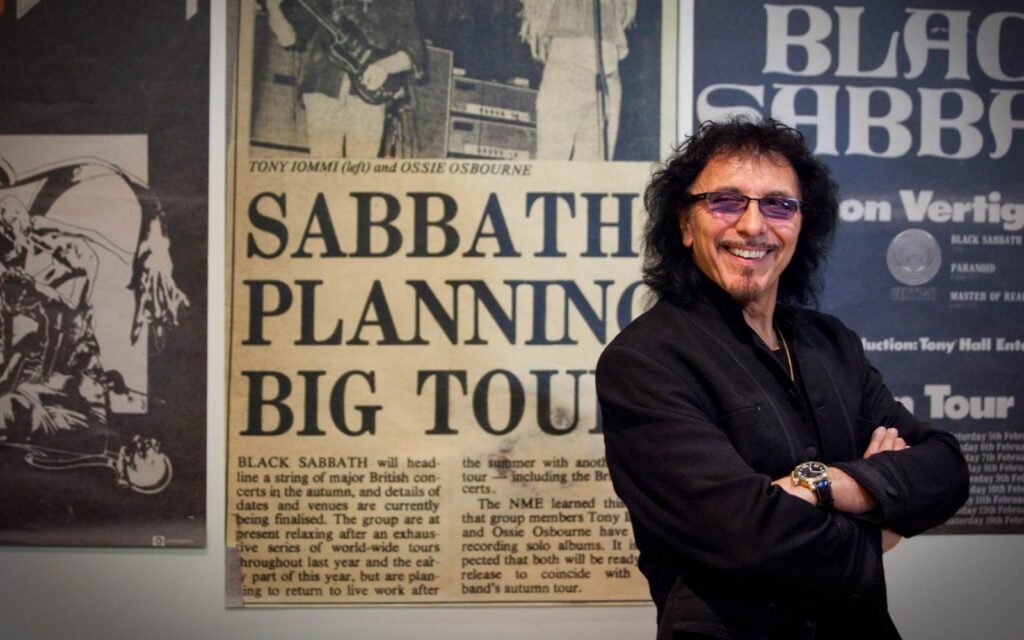Slowdive's Nick Chaplin chats to Mixdown about gear, creative process and the band’s relationship to shoegaze as a phenomenon, from the 90s to now.
In the years following their 1995 break up, the image conjured by the mention of Slowdive was one suspended in amber; the five contemplative, porcelain-pale, twenty-somethings cloaked in white-golden light on the Souvlaki album cover.
Only the band’s second studio album, Souvlaki was recorded in 1992 and released in 1993 via the infamous Creation Records. Although hampered by the shifting tides of UK music criticism upon initial release, with one Melody Maker reviewer stating that he’d “rather drown choking in a bath full of porridge” than listen to the record, Souvlaki has has amassed an ardent cult following over the past three decades. Widely heralded one of the ‘big two’ shoegaze LP’s, it ranked second in Pitchfork’s 50 Best Shoegaze Albums of All Time, conquered only by My Bloody Valentine’s equally venerated Loveless.
Read up on all the latest interviews here.
Diving back through the annals of music journalism, it’s astounding to think that shoegaze was so briefly championed, and so quickly maligned by the 90s music press, as it’s arguably one of the most evergreen genres to have emerged in the decade. To this day, its shoegaze fan communities are some of the most passionate within the guitar and indie music landscapes, spread across the globe and spanning multiple generations.
Speaking with Slowdive’s original and current bassist Nick Chaplin, I was curious to find out what the band’s relationship to shoegaze as a phenomenon is now, with its pejorative connotation having all but been forgotten.
“Well yeah, I mean, it’s definitely changed. We try not to think about it too much, but you can’t deny that it’s a big important part of what the band is, and was. Certainly back in the 90s we were young and we didn’t wanna be pigeonholed, man. We were like, no, we’re unique, so we didn’t want to be a part of that. And [shoegaze] was only very briefly something positive in the 90s in the music press… initially, the bands that were a part of that scene were sort of, adored by the music press, but it was a very short period of time and the backlash came very quickly. And so, none of us wanted that term associated with our music at all.”
“But then, over time, decades pass… who knows why things stick around and why attitudes change, I mean I really don’t know… but coming back it became obvious that the term was something much more positive now. Like in 2014, initially we were very much ‘we don’t want to be associated with it’, but it became quite clear quite quickly that this time around we were gonna have to tackle it, because it was all people wanted to talk about. And we’re sort of quite comfortable with it now really, to be honest it’s like – it is what it is.
“I went to a music store in Reading to get some spares for the tour the other day with my 15-year-old son and the guy in there was like “oh, what sort of music do you play?”, and I hate these situations in music shops – I don’t want to play bass guitars in front of people, I just want to get what I need and leave. But you know, my son was like, oh, he’s in a shoegaze band! And I was thinking ah, he’s not going to know what that is, but he was like “oh great!” and started rattling off… So yeah, it’s like, a total genre now, like heavy metal or punk or whatever. So, you know, embrace it, you’ve gotta embrace it haven’t you.”
Slowdive officially reformed in 2014, and thus the band are in a unique position, having been active at two very different points in their personal lives and in the record industry respectively. When asked if he’s perceived a major shift from the 90s to now, Nick emphasises that the band’s 2010s experience of touring and releasing music has been a far cry from the disarray of former label Creation, whose mythologies – from a willingness to lose their homes so long as an album was released, to being near bankrupted by Kevin Shields’ exorbitant tambourine takes – are still being whispered to this very day.
“Releasing records on Creation, it was just chaos. Creation was chaotic. How they ever released anything with any success… (laughs) I have no idea! It’s a lot better organised now, for sure. And you know, there was talk of us maybe releasing the record in 2017 by ourselves, because we didn’t have a relationship with Dead Oceans, the label, at the time. But we were open to having a relationship with a label, we weren’t sure that we could really manage it ourselves… it’s very time consuming and we are all in our early 50s now… we’ve all got families, we’ve all got quite busy lives outside of the band, we thought, do we actually want to take this on?
“The great thing is, now people can [release independently], which maybe wasn’t an option back in the 90s. But for us, I think, at our time of life, we thought we needed a partner, a label to help us out. And Dead Oceans are obviously very independently minded, they’re a part of the Secretly Group, a big independent umbrella of labels, but they kind of reminded us a bit of creation – in that they’re all young, they’re all into it for the right reasons – just without the chaos. And without the drugs.”
Being that collectively, the band are in a very different phase of life than they were when their first two albums were released, and are now also spread out across the UK, Nick tells me that their writing process, helmed by lead singer and guitarist Neil Halstead, has also evolved somewhat.
“Nowadays, Neil has a bit more of a focused idea of what things should sound like – I think back in the 90s it was probably a bit more collaborative. He actually quite likes to be collaborative; it’s just harder for us to do that with our lives structured the way they are.
“For this [forthcoming] record, there’s a couple of exceptions, but most of the songs were pretty fully realised in Neil’s head, and then we play around in the studio and play different parts and he acts as a producer as well… he’ll take it all away and cut it all up and mix it together and then we give it to a mix engineer to kind of finish off. He’s quite a traditional songwriter. His solo career is very sort of folksy, just an acoustic guitar and acoustic instruments and singing songs about Cornwall where he lives. And so, a lot of Slowdive songs actually come from that, then we just add the band’s kind of… aesthetic?”
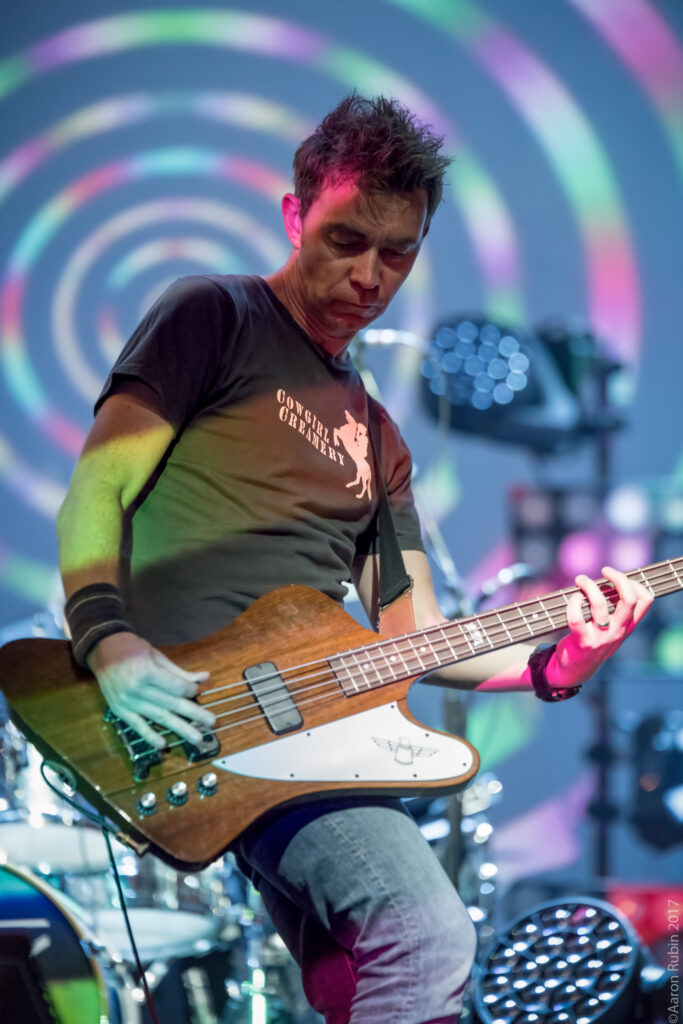
When I explain that Mixdown is an instrument and audio tech publication, and that I am thus chomping at the bit to ask him about Slowdive’s signature tools, Nick laughs and tells me he is probably the worst person in the band to be speaking on the subject. However he’s certain of what is (unsurprisingly) the equipment most integral to the band’s sound.
“We just invested in air tags for all our luggage, this is relevant to this question, because we’ve had a couple of instances over the past couple of years where luggage has not arrived where it should’ve done off aircraft. We’ve worked out that the only two pieces of equipment we can’t do the show without are Neil and Christian’s pedalboards. Which might not come as that much of a surprise. Everything else we can cope with you know, if the guitars don’t show up it’s alright you can just borrow them, but the pedalboards are pretty much crucial, and Neil and Christian have spent decades building them up. I can’t even tell you what’s on them – I know that there are a couple of blue ones which are particularly important (laughs) because we’ve had to buy spares in far flung countries.”
“Back in the 90s we had two boxes, they were Yamaha FX 500 boxes, and they had the traditional Slowdive sounds preprogrammed on them so you’d just hit a number and it would sit on top of the amp, and eventually we had them rack mounted, and that was it! And then the guitarists had basic distortion pedals, and maybe some chorus and reverb or whatever, but it was all through these little FX 500 units whereas now all that’s gone, and the guys have got these huge suitcases with about 50 million pedals on them.”
Though titanic walls of shimmering, effected guitar sounds are precisely what draw many fans to shoegaze music, Nick is adamant that at Slowdive’s core – it’s rock solid songwriting that defines the band.
“Even though we would never do a stripped down acoustic set, because I don’t think people want that from this band… It’s always important to us that the songs stand up enough that we would be able to play them on some acoustic instruments, and for them still to be songs, because at the end of the day we want to release good songs, we don’t want to release a load of boring nothing and swathe it in effects to make it sounds good.”
“Sugar for the pill was a song that Neil was originally going to release solo, just as a folk song, but something in it made him think, oh, maybe this will work for Slowdive. It’s not a typical Slowdive song, but if you look online it’s become our most popular video watched on Youtube, and it’s at 1 or 2 on Spotify. So, you just never know.”
Undoubtedly, Slowdive’s lasting appeal is owed to a confluence of emotionally honest lyrical prowess, and the all-immersive, ethereal sonics with which those shimmering feelings of euphoria and melancholy are amplified.
And yet, with our time almost up, I can’t resist asking Nick about what’s on his current bass rig.
“I struggle with coordination, so I can’t have too many pedals… I’ve got a Hotcake overdrive and a Boss Bass Chorus and a tuner and that’s basically it. I don’t even have that many basses. At the moment I’m playing a Fender Jazz Bass, one of the newer active ones, I used to have a Jazz back in the 90s which was a passive one, and it never had enough grunt really for onstage, I used to always use the Musicman Stingray on stage because that was the one that would really cut through, and the rest of the band could always hear that big sound – and whenever I brought the Jazz out they’d be like, are you even playing?
“But I always wanted to go back to the Jazz cause I like the neck and I like the shape, so this time around when I saw that they’d produced some active ones that are slightly more powerful sounding I picked up one of those. That’s what I’m using at the moment. That and a Gibson Thunderbird, which I like cause it looks metal.”
Keep up to date with all things Slowdive here.
